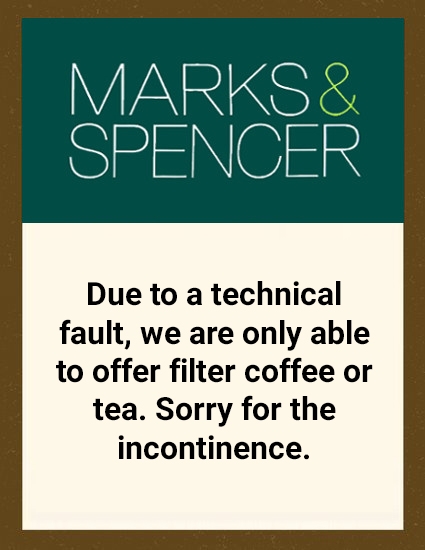Content » Ours is a Living Language – Let’s Write it Better
Get the message?
As the picture above shows, it doesn’t matter how we spell a word or a group of words forming a sentence. As long as we use the correct letters in any random order, without too much trouble, our very clever brains will decipher the twaddle and make good sense of it.
Scientific fact? Perhaps. But I tend to think the “fact” is flawed. I think words and, just as crucially, the punctuation they are decorated in, matter very much indeed.
Put simply, there’s a world of difference between “Let’s eat grandma” and “Let’s eat, grandma”. The tiny oh so humble comma convinces me that good spelling and good grammar is important.
Please read my lips, or rather, imagine them moving as you read the following: Full stops matter, capitals matter (but don’t overuse them), question marks matter, apostrophes matter (as attested by our friends at the Apostrophe Protection Society) and, as illustrated above, the humble comma could and should be considered a matter of life and death.
That’s not to say I’m lost in a Shakespearean time warp of antiquarian dialogue, of forsooths and where for art thous and of pointless pedantic punctuation. Most certainly I am not.
To the contrary. I realise that, thankfully, English is a lovely living, constantly evolving language.
In fact, I wait with eager anticipation each year for publication of the list of new words that are to be welcomed with a fanfare and a drum roll into our beautiful and burgeoning lexicon by the likes of Chambers, Collins and the Oxford English dictionaries.
I’m fully behind and supportive of recently absorbed portmanteau manifestations such as “youthquake” (a significant political, cultural or social change arising from the actions or influence of young people), “craptacular” (remarkably poor and disappointing), “bronde” (hair dyed both blonde and brunette) and “fitspiration” (a person or thing that serves as motivation for someone to sustain or improve health and fitness).
Likewise, bring on media manipulations such as “clicktivism” (a pejorative word for armchair activists on social media), “haterade” (excessive negativity, criticism, or resentment), “otherize” (view or treat – a person or group of people – as intrinsically different from and alien to oneself) and “herd mentality” (the tendency for people’s behaviour or beliefs to conform to those of the group to which they belong).
Yes, bring it all on. But, I urge you all, if we are going to use such words make sure they are spelt correctly, used in the correct context and that they are adorned with the correct punctuation.
Not surprisingly, social media has spawned many of these new words for our brave new world, a good number probably invented with a degree of serendipity.
By contrast text speak does little to expand our vocabulary, rather it helps contract it. Punctuation in phone text is scant (discounting exclamation marks and emojis) but it is gr8 for new spelling conventions. And it is an absolute godsend when time and space is at a premium.
However, in my humble opinion, there is no place for such short-forms in business communications, or in any “serious” commentary or documentation.
And, back to our general understanding of words, their context, and how best to use them. Spare a thought for the M&S employee who put up the following sign apologising to customers about the restricted beverage offering at its cafe in Cardiff.

Verbal diarrhea? When it comes to the written word, there is absolutely no excuse for bad language.
That’s why To The End makes use of professional writers to mind their clients’ spelling, commas, quote marks and apostrophes – in fact we can mind all their Ps and Qs in all social media, outreach, marketing, internal comms, policy documents, business pitches and press releases.
We like to use smart words in their simplest form to deliver the most compelling messages to our clients’ existing audiences, future prospects, employees and business partners.
We still believe that content is king in all marketing, and for us, good spelling and good grammar should act as the royal guard of honour.
If you want to know how your grammar holds up, take the test.
And another thing…
As well as knowing how to weave together highly desirable words and passages, we have our opinions too on the derivation of some well coined phrases.
Ps and Qs for example, I understand, is a phrase first used in English taverns of the 17th century – now there’s a fine environment in which to formulate imaginative and colourful language if ever there was one.
Ps and Qs were pints and quarts, the standard measures for ale. It is said that innkeepers kept a close watch on how much their patrons were drinking and as a reminder about their behaviour they warned rowdy customers to “mind their Ps and Qs”.
Well it sounds perfectly plausible to me! Cheers, santé, prost, saluti… in whichever language, at To The End we promise to write it better, so you don’t have to.



© 2022 Maze Media Ltd • All Rights Reserved